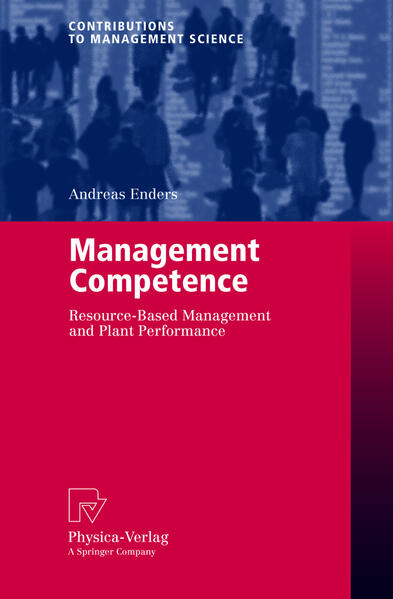
Zustellung: Di, 31.12. - Sa, 04.01.25
Versand in 3 Tagen
VersandkostenfreiBestellen & in Filiale abholen:
Eight years ago, the production management department ofthe WHU launched the industry competition ,Best Factory / Industrial Excellence Award' jointly with the media partner Wirtschaftswoche in Germany. Two years earlier, the competition had been initiated successfully by INSEAD faculty in France. Over the years, the joint research team experienced first-hand that application of Management Quality was a key driver ofcontinuous improvement along the firm's core business proc esses. Moreover, those companies that exhibited the highest improvement rates achieved mostly the best business results (compared to their industry bench marks). Andreas Enders accompanied us for five rounds of the competition as program manager for the German competition. His contributions - among others the launch ofour web site www. beste-fabrik. de - are greatly acknowledged by the academic advisory team. The fmdings ofthe industry competition greatly influenced this thesis on Man agement Competence. Initially, the main research question though was to provide a theoretic foundation and an empirical test for the seven-factor Management Quality model (as defined in our recent book on Industrial Excellence). Manage ment Quality consists of strategy formulation and deployment combined with delegation of tasks to workers and their participation. In addition, measurement, integration, communication and training complement the main levers. While there exist numerous studies on superior business performance and key success factors, there are few sound empirical studies available to date on operational performance and sustained business success.
Inhaltsverzeichnis
1 Introduction.- 1.1 Starting Point of Our Research.- 1.2 Objectives of Our Study.- 1.3 Research Agenda.- 2 Literature Overview.- 2.1 Introduction and Chapter Structure.- 2.2 Business Strategy.- 2.3 Towards Resource Management.- 2.4 Onto Operations.- 2.5 Towards Industrial Excellence.- 3 Management Competence Model.- 3.1 Base Model.- 3.2 Competence and Performance Dimensions.- 3.3 Dependencies.- 3.4 Moderated Dependence Analysis.- 3.5 Summary.- 4 Methodology.- 4.1 Qualitative Analysis.- 4.2 Quantitative Analysis.- 5 Empirical Results.- 5.1 Factor Analysis.- 5.2 Multitrait-Multimethod Analysis.- 5.3 Dependence Analysis.- 5.4 Moderated Model.- 6 Conclusion.- 6.1 Central Results.- 6.2 Scientific Review.- 6.3 Scientific Restrictions.- 6.4 Managerial Implications.- References.- Appendix Questionnaires.
Mehr aus dieser Reihe
Produktdetails
Erscheinungsdatum
20. Juli 2004
Sprache
englisch
Auflage
Softcover reprint of the original 1st ed. 2004
Seitenanzahl
220
Reihe
Contributions to Management Science
Autor/Autorin
Andreas Enders
Verlag/Hersteller
Produktart
kartoniert
Abbildungen
XIV, 206 p. 15 illus.
Gewicht
341 g
Größe (L/B/H)
235/155/13 mm
Sonstiges
Paperback
ISBN
9783790802627
Entdecken Sie mehr
Bewertungen
0 Bewertungen
Es wurden noch keine Bewertungen abgegeben. Schreiben Sie die erste Bewertung zu "Management Competence" und helfen Sie damit anderen bei der Kaufentscheidung.

































